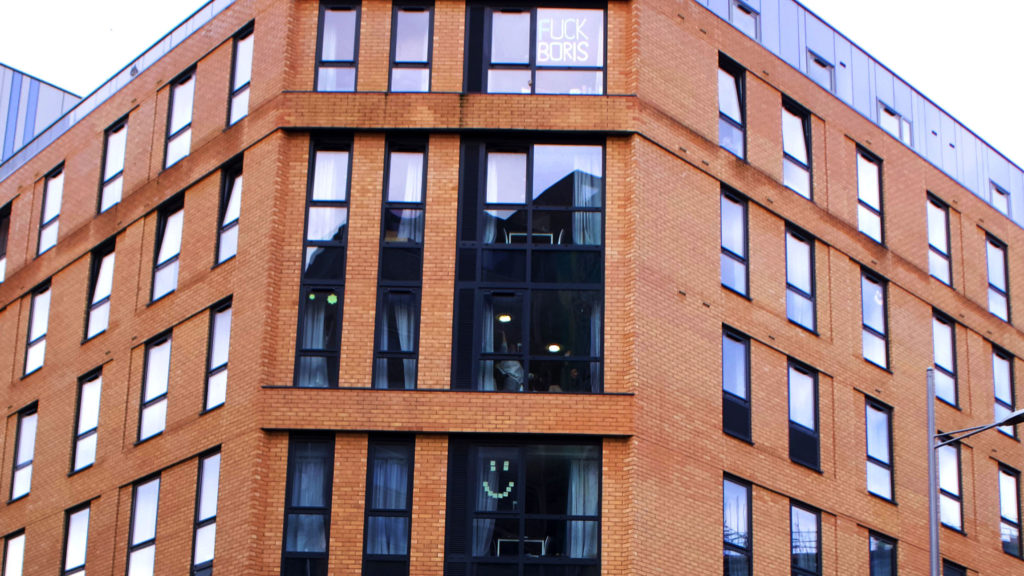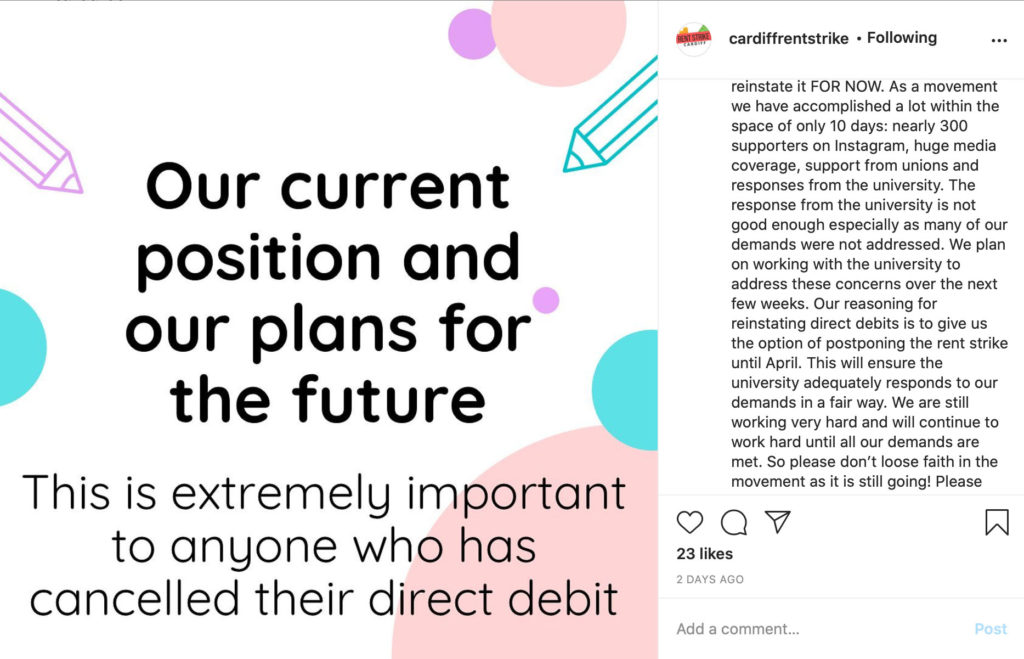The strike organisers have decided to delay the action scheduled for January 19th as Cardiff University has shown a willingness to cooperate.

Cardiff students campaigning for housing and welfare said they will keep fighting, despite the decision to postpone the action expected this week.
The strike was scheduled for January 19th. The delay comes after the announcement of the Welsh Government’s 40 millions pounds grant and Cardiff University’s will in starting negotiations with students.
Emily Carr, who joined Cardiff Rent Strike on the second day it was launched, said that this does not mean that the fight is over.
“This is a long term issue that we are fully committed to. We are committed to doing what’s right for students and we are not going to back down,” said Emily.

On January 13th, the Pro Vice-Chancellor for Education and Students Claire Morgan sent a message announcing that after listening closely to students the University will offer additional mental health support and a rent rebate for those that cannot return to their University’s accommodation rooms.
The negotiations will begin after Cardiff Rent Strike will have delivered the new set of demands. These will be published on their social channel within few days.
The main organiser, Ibrahim Khan, created the Instagram account and launched an online petition calling for cuts in rent fees on the 8th of January. The movement grew quickly and after just a couple of weeks is already achieving important results.
The group set few “reasonable” demands. They asked to cut rent fees during the lockdown and a refund for the time that students are not occupying the facilities. Also, they called the University to improve mental health services.
As Emily, first year undergraduate student in Politics and International Relations, said: “The whole thing isn’t just about the money, it’s about protecting students.
“Lots of people are having such a difficult time, this is continuous. Universities as a whole need to step up and meet welfare needs.”
The surveys conducted in November by the Office for National Statistics (ONS) pointed out exactly how the health pandemic is having repercussions on students’ emotional state. Their findings show that amongst 2,000 who responded, the 57% reported a worsening in their mental health and well-being.

Also the Students Union, who said to be supportive of Cardiff Rent Strike’s actions, is working on these issues and it will be part of the negotiations.
SU President Tomos Evans said that they have managed to secure hundreds of hours for additional counselling support as well as hold online activities.
“Nobody should feel alone,” said Tomos, encouraging students to reach out if they need help.
Talking about strategies, Emily said: “We could learn a lot from tactics and what works well, especially with the Manchester strike. It definitely helped create quite a rigorous structure and to make sure there are some elements of legal protection.
“We didn’t really agree with them in terms of attacking setting individuals. We wanted to make sure that we avoided doing that.”
This pragmatic approach has been effective so far. While for the long term results we still need to wait for a little bit longer.
